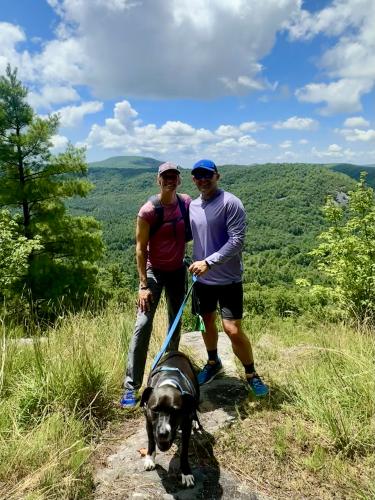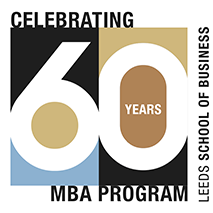How Shannon Jones is Growing the ETA Community
When Shannon Jones first moved to Boulder, he didn’t know many people. But what he did know was that Boulder’s “Give First” mentality and its growing entrepreneurial community were something he wanted to be a part of.
Fast forward many years, and Jones has not only become heavily involved in the CU Boulder ecosystem, but he’s also helped shape it. Through two MBA courses he created, he has brought students face-to-face with real-world entrepreneurial decision-making. His approach to teaching goes beyond traditional lecture and textbook methods. By focusing on creating a hands-on experience, students gain insight into the strategies and methods for starting, acquiring, or scaling a company.
Now, there’s an opportunity to experience Entrepreneurship Through Acquisition (ETA) outside the classroom in Boulder. With the first Rocky Mountain ETA Conference (RMETAC) taking place in late October 2025, it promises to provide a vigorous and lively discussion about current activity and opportunity in the ETA field.
Laying the Groundwork for an ETA Ecosystem
Before joining CU Boulder, Jones had already built a storied career ETA. While many think of entrepreneurship as creating something new from the ground up, ETA offers a different perspective through acquiring existing businesses and applying strategic thinking and strong leadership to grow them.
“I actually think that entrepreneurship through acquisition is probably a more appropriate path to entrepreneurship for most MBAs… because you’re buying something that’s been around for decades, has employees, has customers — it’s much more easily understood, and the risk there is lower.”
Jones discovered this model after earning his MBA at Kellogg, where he was first exposed to the concept of “search funds,” an emerging idea at the time. Through his work with family offices and private equity partners, he went on to help dozens of entrepreneurs acquire and grow successful companies.
Jones spent more than a decade leading and advising these acquisitions, founding Halstatt Legacy Partners in 2013, a private equity group that specialized in mentoring MBAs and first-time buyers through the process. He worked to identify smaller businesses that had strong potential, but just needed new energy to scale. His approach is centered around showing others that acquiring a company is one thing, but the way to lead them is key. Over the years, he watched the ETA model evolve from a niche idea to a powerful entrepreneurial pathway.

That experience eventually led him to the University of Colorado Boulder, where he saw an opportunity to bring ETA education to a new audience. Having taught at schools like Kellogg, Duke, and Carnegie Mellon, Jones recognized that CU had both the community and the entrepreneurial culture to support it. With the help of colleagues like Erick Mueller and Tony Tong, he developed CU’s first ETA course, sparking significant momentum in the respective community.
The momentum has culminated in the first Rocky Mountain ETA Conference, a major event bringing together many from the ETA ecosystem. For Jones, the conference represents the next step in building on that ecosystem that helps students see that owning a business doesn’t always start with inventing something new. Sometimes, it starts with taking over something that already works and making it even better.
Learning Through Doing
In the Entrepreneurship Through Acquisition course, created by Jones, students dive into the full lifecycle of buying and operating a business. As mentioned previously, Jones instructs it through a hands-on approach, exposing students to real-world experiences. Through real investors and operators, students learn directly from those in the ETA community.
The first half of the course introduces them to the fundamentals, including how to identify acquisition opportunities, negotiate details, and transition into leadership. As the class progresses, it transforms, evolving into a deeper exploration of what it really means to take ownership of a company.
Jones emphasizes that ETA isn’t just for the traditional risk-takers or founders. In fact, he believes it’s an especially valuable path for MBA students who might not see themselves as “traditional” entrepreneurs. Many students have exceptional leadership skills, but are unsure how to create something and build it from the ground up. Through ETA, these leadership skills are unlocked, allowing them to make an impact. The class has quickly become one of the most practical and eye-opening experiences for many students, challenging them to rethink what entrepreneurship means in today’s business world.
His other course, Projects in Entrepreneurial Companies, takes a different angle. While ETA focuses on acquiring existing businesses, this class gives students a chance to experience what life is like inside early-stage or scaling ventures. Students work directly with founders and small companies to see how leadership decisions play out in real time. For many, it’s their first exposure to a startup’s fast-paced and often chaotic environment.
Jones intentionally designed the course to simulate that unpredictability. The experience helps them understand how entrepreneurs operate while exploring if the type of environment fits them. As Jones likes to remind his students, realizing that entrepreneurship might not be the right fit is just as valuable as realizing it is.
Both courses are designed to push students out of their comfort zones, but in completely different ways. Rather than giving his students a list of steps or concepts to memorize, Jones structures each course to mirror the uncertainty of entrepreneurship itself.
“It’s less about the answer and more about the process you go through to find it — that’s what I’m trying to give them: an experience that feels like what an entrepreneur actually feels.”
Positioning Yourself to Get Lucky
While Jones built his career around teaching business strategy, his lessons go far beyond finance or deal structure. At the heart of everything he teaches is the belief that entrepreneurship is about tolerance.
Jones believes that being an entrepreneur doesn’t necessarily mean starting the next billion-dollar company. It means seeing the world as it is and having the courage to imagine what it could be. His philosophy aligns with Boulder’s entrepreneurial spirit, describing Boulder as uniquely open to experimentation and collaboration.
All in all, Jones reminds his students that nothing in entrepreneurship is truly given. Opportunities will come to those who ask for them. Students who take initiative and risks will succeed, because success isn’t about luck: it’s about preparation. So, those who experience more “lucky breaks” than others aren’t just by pure chance, but because they put themselves in a favorable position.
“People may wonder if the ‘give first’ mentality is really a thing, and in my experience, it absolutely is. But what I tell my students is that nothing is given to an entrepreneur — you get lucky by being prepared and by asking for help, advice, and feedback over and over again.”
Boulder’s ETA community is rapidly growing, through the classroom, and now with the first RMETAC. With the new conference bringing together universities across Colorado, Jones sees it as the beginning of a community where ETA becomes equally as recognized as founding a startup from scratch. For him, it’s not about building the next Silicon Valley, but about building better entrepreneurs, wherever they start.







